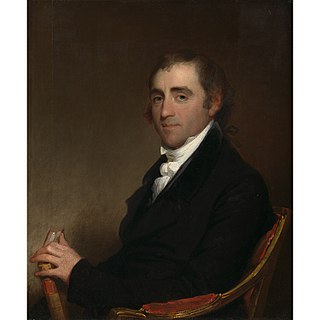A Quote by Calvin Coolidge
It is all the more necessary under a system of free government that the people should be enlightened, that they should be correctly informed, than it is under an absolute government that they should be ignorant. Under a republic the institutions of learning, while bound by the constitution and laws, are in no way subservient to the government.
Related Quotes
If Aristotle, Livy, and Harrington knew what a republic was, the British constitution is much more like a republic than an empire. They define a republic to be a government of laws, and not of men. If this definition is just, the British constitution is nothing more or less than a republic, in which the king is first magistrate. This office being hereditary, and being possessed of such ample and splendid prerogatives, is no objection to the government's being a republic, as long as it is bound by fixed laws, which the people have a voice in making, and a right to defend.
The nature of the economic system should be a matter for public choice, and free market capitalism should not be accepted without any discussion of the rich variety of alternatives ... Unlike civil laws, economic laws are imposed on people with all the authority of immutable laws of nature. But the economy is created by people, supported by government intervention, regulation, statute and subsidy, and implemented in such a way that it gives substantial wealth and power to a privileged few, while the majority face a life of relentless work, stress and periodic financial insecurity.
Ours was the first revolution in the history of mankind that truly reversed the course of government, and with three little words: 'We the people.' 'We the people' tell the government what to do, it doesn't tell us. 'We the people' are the driver, the government is the car. And we decide where it should go, and by what route, and how fast. Almost all the world's constitutions are documents in which governments tell the people what their privileges are. Our Constitution is a document in which 'We the people' tell the government what it is allowed to do. 'We the people' are free.
We, the People of this country, have no unalienable rights... all our rights are subject to modification... the Constitution of the United States of America is nothing more than a piece of paper and... our government should not be restrained by the Constitution because our government can do good things for people.
Government has only one religion - India first! Government has one holy book - the Constitution. The Government must be immersed in only one Bhakti- Bharat Bhakti! The Government's only strength is Jan Shakti! Government's only ritual is the well being of the 125 crore Indians! The only code of conduct of the Government should be 'Sabka Saath, Sabka Vikas!
We insist on producing a farm surplus, but think the government should find a profitable market for it. We overindulge in speculation, but ask the government to prevent panics. Now the only way to hold the government entirely responsible for conditions is to give up our liberty for a dictatorship. If we continue the more reasonable practice of managing our own affairs we must bear the burdens of our own mistakes. A free people cannot shift their responsibility for them to the government. Self-government means self-reliance.
A famous, very often quoted phrase says: "That government is best, which governs least." I do not believe this to be a correct description of of the functions of a good government. Government ought to do all the things for which it is needed and for which it is established. Government ought to protect the individuals within the country against the violent and fraudulent attacks of gangsters, and it should defend the country against foreign enemies. These are the functions of government within a free system, within the system of the market economy.
Government has three primary functions. It should provide for military defense of the nation. It should enforce contracts between individuals. It should protect citizens from crimes against themselves or their property. When government-- in pursuit of good intentions tries to rearrange the economy, legislate morality, or help special interests, the cost come in inefficiency, lack of motivation, and loss of freedom. Government should be a referee, not an active player.
Inflation is probably the most important single factor in that vicious circle wherein one kind of government action makes more and more government control necessary. For this reason all those who wish to stop the drift toward increasing government control should concentrate their effort on monetary policy.
The basis of our governments being the opinion of the people, the very first object should be to keep that right; and were it left to me to decide whether we should have a government without newspapers or newspapers without a government, I should not hesitate a moment to prefer the latter. But I should mean that every man should receive those papers and be capable of reading them.































